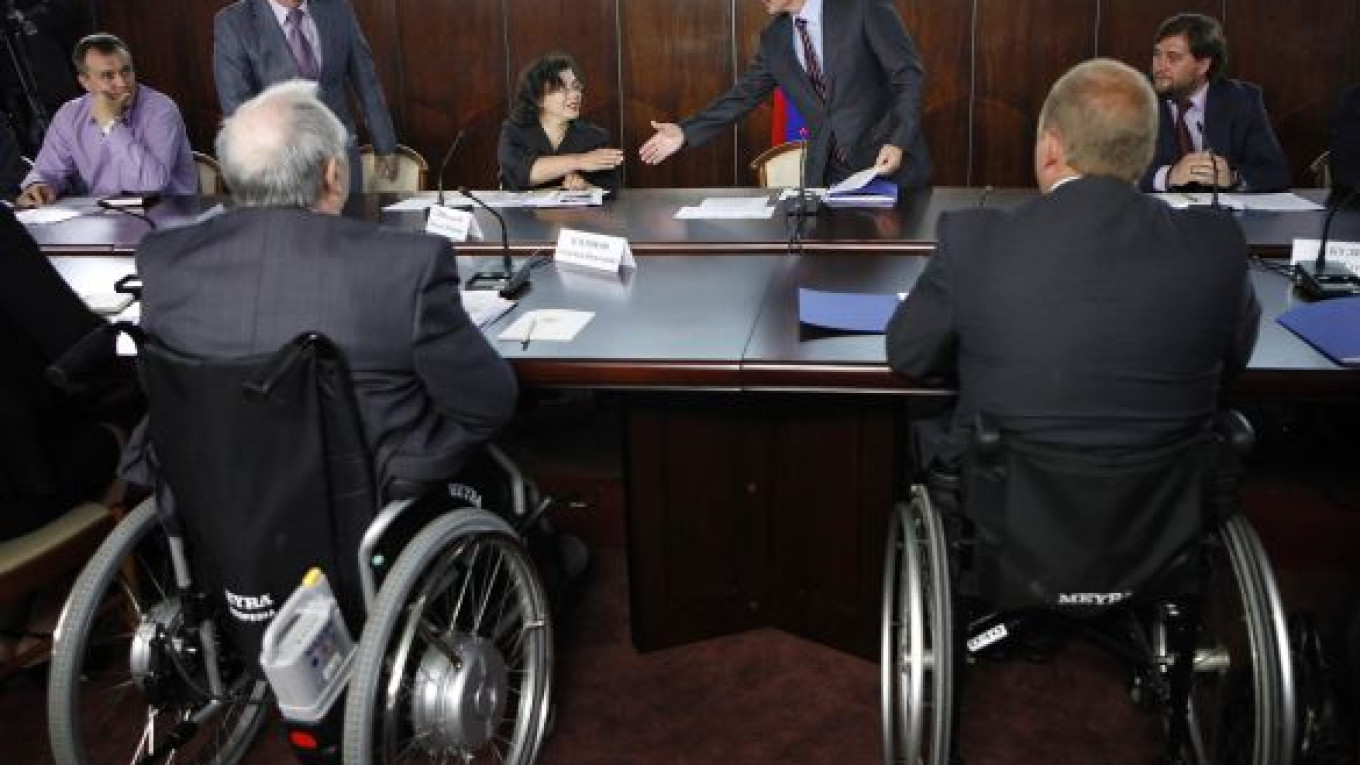Prime Minister Vladimir Putin pledged help and cash for disabled people Friday, seeking to broaden support for his All-Russia People's Front ahead of December's State Duma elections.
Russia signed the UN Convention on the Rights of Persons with Disabilities, aimed at ensuring equal rights, in 2008, but its 13 million disabled people enjoy little benefits compared with their peers in developed countries.
"We have to admit that in our country very little has been done to create a favorable environment for people who faced difficulties in life," Putin told leaders of organizations for the disabled that joined the All-Russia People's Front, which he created to prop up eroding support for his United Russia party.
Putin said that all administrative buildings throughout Russia would soon be equipped with wheelchair ramps and elevators.
Cities currently provide little access for people with disabilities to transportation, public buildings, schools, medical facilities and workplaces as requested by the UN convention; the education system is de-facto segregated.
Russia needs to change 50 laws before it can ratify the convention, which has an annex allowing individuals and groups to complain to the United Nations if their governments are not implementing it.
Putin said the government had budgeted $1.8 billion through 2015 to create an accessible environment for the disabled in cities and promised to speed up construction of a $10 million rehabilitation center in Chechnya.
Vladimir Krupennikov, who climbed Elbrus, Russia's highest mountain, in a wheelchair, warned Putin that endemic corruption was a threat to the plan, citing his own experience of state-funded tenders.
"People with no interest in the disabled come, bid a lower price and win. They just want to get the money and then blackmail the organizations for the disabled," he said. "There are many thieves posing as the disabled."
A Message from The Moscow Times:
Dear readers,
We are facing unprecedented challenges. Russia's Prosecutor General's Office has designated The Moscow Times as an "undesirable" organization, criminalizing our work and putting our staff at risk of prosecution. This follows our earlier unjust labeling as a "foreign agent."
These actions are direct attempts to silence independent journalism in Russia. The authorities claim our work "discredits the decisions of the Russian leadership." We see things differently: we strive to provide accurate, unbiased reporting on Russia.
We, the journalists of The Moscow Times, refuse to be silenced. But to continue our work, we need your help.
Your support, no matter how small, makes a world of difference. If you can, please support us monthly starting from just $2. It's quick to set up, and every contribution makes a significant impact.
By supporting The Moscow Times, you're defending open, independent journalism in the face of repression. Thank you for standing with us.
Remind me later.


